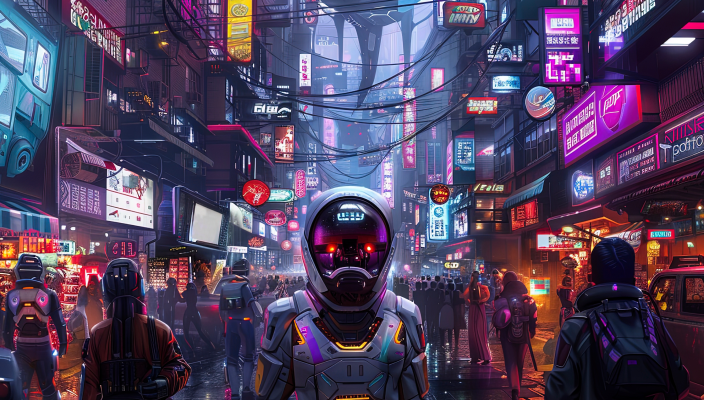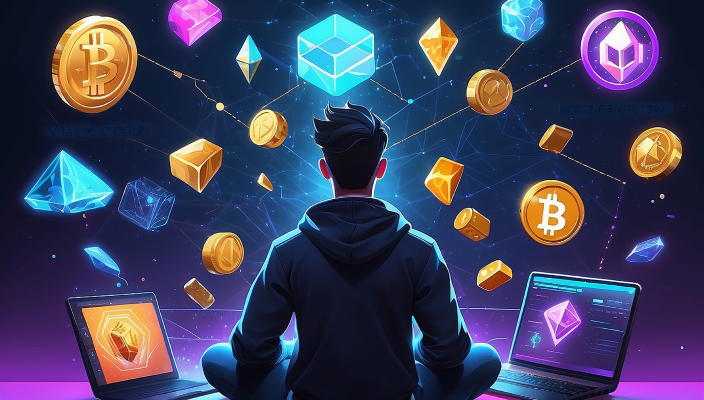In 2024, NFT (Non-Fungible Token) marketplaces are growing at a rapid pace. If you’re thinking of building one, selecting the right blockchain platform is critical for your success. Different blockchains offer varying degrees of scalability, security, and support for unique features like composable NFTs or rental NFT services. Choosing the right foundation can make or break your project. So, where should you begin?
This article will guide you through the top blockchain platforms for NFT marketplace development in 2024, while incorporating essential keywords like NFT Marketplace Development Company and Composable & Rental NFT Development Services.
Introduction to NFT Marketplaces
NFT marketplaces have exploded in popularity, offering creators a way to tokenize digital assets, from art and music to virtual real estate and gaming items. By integrating with blockchain technology, these platforms ensure transparency, security, and proof of ownership.
In 2024, the NFT space is expanding even further, thanks to new technologies like composable NFTs (interchangeable NFTs with unique features) and rental NFT services. To stay ahead, it’s essential to understand the foundation upon which these platforms are built—the blockchain.
Why Blockchain Matters for NFT Marketplaces
The blockchain is the backbone of any NFT marketplace. It secures every transaction, verifies the authenticity of tokens, and ensures that all data is transparent and immutable. However, not all blockchains are created equal. Some offer better scalability, faster transactions, or more support for smart contracts.
If you’re looking to build an NFT marketplace, you need to choose a blockchain that aligns with your goals, whether it’s transaction speed, decentralization, or advanced features like composability and rentals.
What to Look for in a Blockchain Platform for NFT Development
When selecting a blockchain for your NFT marketplace, keep the following factors in mind:
- Transaction Speed: Faster transactions reduce wait times and make your marketplace more user-friendly.
- Gas Fees: Lower fees ensure users can afford to mint, trade, or buy NFTs without breaking the bank.
- Security: A blockchain’s security infrastructure is crucial to avoid hacks and ensure data integrity.
- Smart Contract Support: To automate processes like bidding, selling, and renting NFTs.
- Community and Developer Support: A robust ecosystem makes it easier to find developers, plugins, and tools.
Top Blockchain Platforms for NFT Marketplace Development in 2024
1. Ethereum
Ethereum remains the most popular blockchain for NFTs in 2024, and for good reason. It pioneered the ERC-721 and ERC-1155 token standards, which are widely used in NFT marketplaces. Ethereum offers high-level security, decentralization, and a vast ecosystem of developers and projects.
However, gas fees on Ethereum can be quite high. If your marketplace is targeting high-volume users or small-scale transactions, this could be a drawback. Fortunately, Layer-2 solutions like Polygon can help mitigate these costs.
2. Binance Smart Chain (BSC)
Binance Smart Chain is known for its speed and lower transaction costs, making it an appealing choice for NFT marketplaces that expect heavy traffic. BSC offers full support for smart contracts, and its compatibility with Ethereum’s development tools makes it an easy choice for developers transitioning from Ethereum.
Though slightly more centralized than other blockchains, BSC’s efficiency in cost and speed makes it a solid contender for projects on a budget.
3. Solana
Solana has become a popular choice for NFT projects due to its high throughput and low transaction fees. With its unique Proof of History (PoH) consensus mechanism, Solana can handle thousands of transactions per second, making it ideal for marketplaces that expect high volumes of activity.
Solana is particularly attractive for its low gas fees, allowing users to trade and mint NFTs without the financial barriers often associated with Ethereum.
4. Flow
Flow was designed with NFTs in mind. Developed by Dapper Labs, the team behind NBA Top Shot, Flow is optimized for creating scalable, user-friendly experiences on NFT platforms.
Its focus on scalability and ease of use makes it perfect for larger projects, especially those focusing on composable & rental NFTs. Flow is gaining traction for these new types of NFTs, enabling platforms to create more interactive and flexible experiences.
5. Polygon
Polygon, a Layer-2 scaling solution for Ethereum, is perfect for those who want to leverage Ethereum’s security while minimizing costs. It offers faster transactions and lower gas fees, which are essential for NFT marketplace development services.
Polygon’s robust developer ecosystem also ensures that NFT marketplaces built on this platform will have long-term viability and scalability.
Composable & Rental NFT Development Services
A growing trend in 2024 is the rise of composable NFTs—tokens that can interact with each other in complex ways, unlocking new possibilities for interoperability and user engagement. Platforms offering rental NFT development services are also gaining popularity, allowing users to temporarily lease out their NFTs, adding another layer of revenue generation for both users and platform owners.
These features are shaping the future of NFT marketplaces, and leveraging them effectively can set your platform apart in a crowded market.
Why Partner with an NFT Marketplace Development Company?
Developing an NFT marketplace is no small feat. It requires technical expertise, a deep understanding of blockchain, and knowledge of the latest trends like composable and rental NFTs. Partnering with a reputable NFT Marketplace Development Company ensures that you have the right team to bring your vision to life.
These companies offer end-to-end solutions, from ideation and design to blockchain integration and security protocols, allowing you to focus on growing your user base and creating a seamless experience for your community.
Conclusion
As the NFT marketplace landscape continues to evolve in 2024, selecting the right blockchain platform is crucial for success. Platforms like Ethereum, Binance Smart Chain, Solana, Flow, and Polygon each have unique advantages that cater to different types of NFT projects. For those looking to innovate, composable and rental NFTs offer exciting new opportunities.
Whether you’re a developer, an entrepreneur, or a business looking to enter the NFT space, partnering with an experienced NFT Marketplace Development Company can be the key to launching a successful, future-proof marketplace.
Frequently Asked Questions (FAQs)
- What is the best blockchain for NFT marketplaces?
Ethereum remains the most popular due to its strong security and developer ecosystem, but options like Solana and Binance Smart Chain are great alternatives for lower fees and higher throughput.
- How do composable NFTs work?
Composable NFTs are tokens that can interact with other NFTs, unlocking new functionalities, like combining digital assets or creating unique experiences within platforms.
- Can you rent NFTs on blockchain platforms?
Yes, rental NFTs allow users to lease their digital assets for a specific period, creating new revenue streams for owners.
- What is the benefit of working with an NFT Marketplace Development Company?
An NFT Marketplace Development Company provides the technical expertise, infrastructure, and support needed to develop a secure and scalable platform.
- Why is Solana gaining popularity for NFT marketplaces?
Solana’s low fees, fast transactions, and high throughput make it ideal for NFT marketplaces, especially those expecting high volumes of transactions.









































